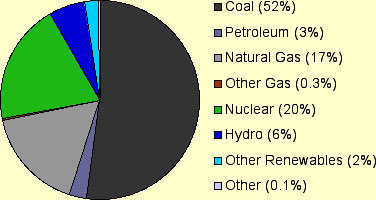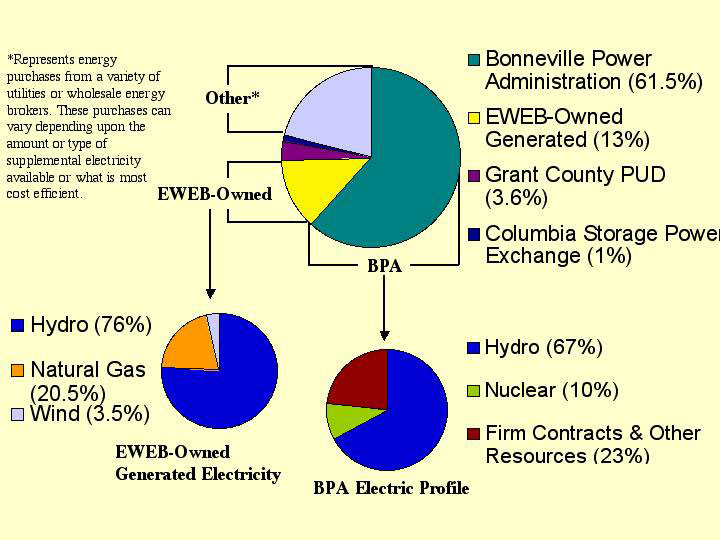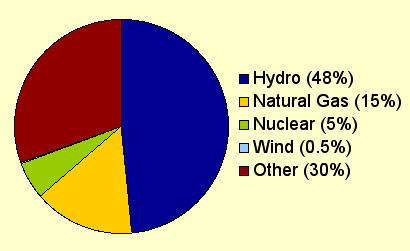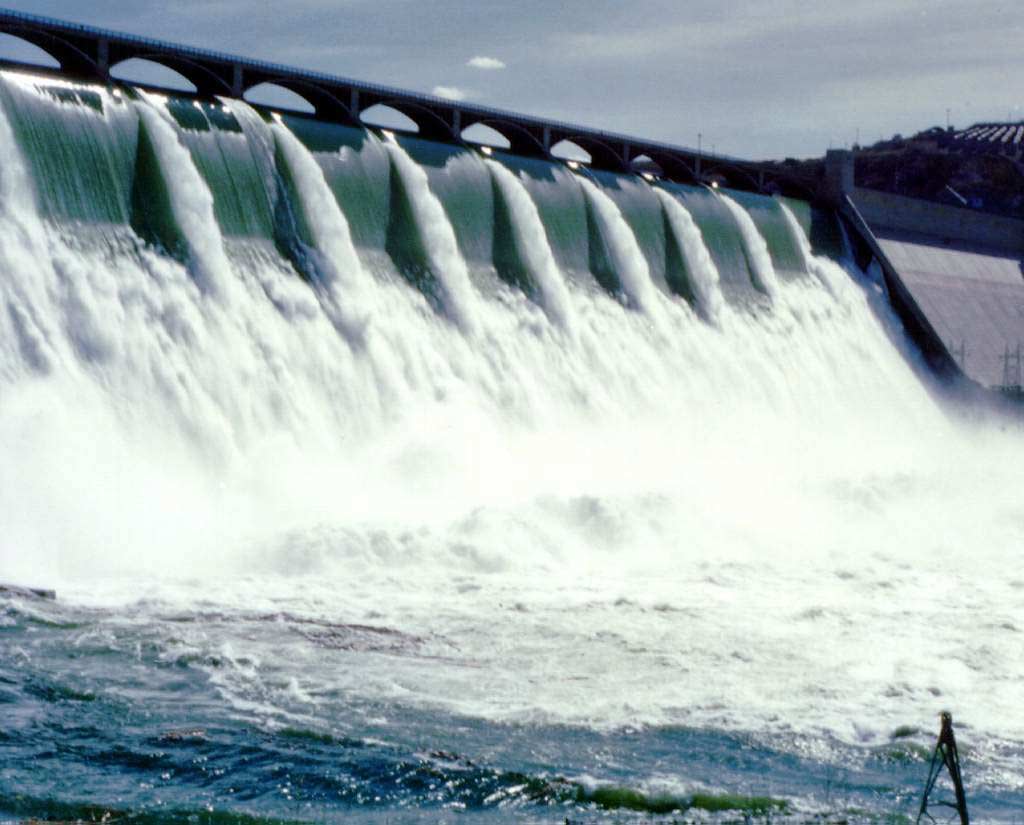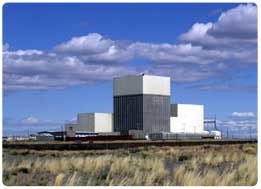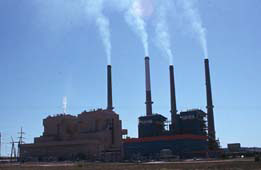
Data:
|
Energy
Production |
Electricity in the Northwest In the Pacific Northwest, hydroelectric generated power accounts for most of the power generation. At generating capacity, this measures to 62% of the total energy profile. Coal accounts for a mere 23%. To compare, coal makes up about 52% of the total US energy profile, while hydroelectric only makes up 6%.
|
United States Electric Profile
Data Source: Energy Information Administration |
||
Where Does
Our Electricity Come From? |
University
of Oregon Electricity Profile
|
||
|
|
|||
|
University
of Oregon Energy Production Sources |
|
Grand
Coulee Dam |
Hydroelectric Generation Issues: Hydropower is considered a renewable form of electricity because it does not burn fuel or add to air pollution. However, dams have a large effect on the ecosystem downstream, threatening salmon and decreasing the overall diversity of riparian vegetation and ecosystems. For more information about hydroelectric power production in the Northwest and its effects, click here. |
Columbia
Generating System |
Nuclear Power Generation Issues: Nuclear power is more reliable than wind or solar power, however it produces Uranium Dioxide as a by-product of nuclear fission. It creates a radioactive waste which, when inhaled or ingested, can cause kidney toxicity or even death. More immediate exposure to radiation can cause cancer. For more information on the production of nuclear power in the Northwest and its effects, click here. |
| UO Physical Plant |
Electricity from Natural Gas Issues: The UO Central Power Station uses natural gas as their primary fuel source. Natural gas burns much cleaner than coal, however it is not as cost efficient and it is a finite fuel. Overall, the production of natural gas is inefficient, using much of the energy gained for extraction, refining, and transportation. For more information, click here. |
Colstrip Plant,
Montana Coal Power |
Electricity from Coal Issues: 30% of the UO energy profile is undefined because power is purchased from day to day and the price fluctuates, somewhat like the stock market. This means we don't always know where our energy comes from. We could receive a portion of our electricity from coal fired plants. The burning of coal is the highest producer of toxic air pollution in the country. It causes acid rain and has made a significant impact on global warming. |
